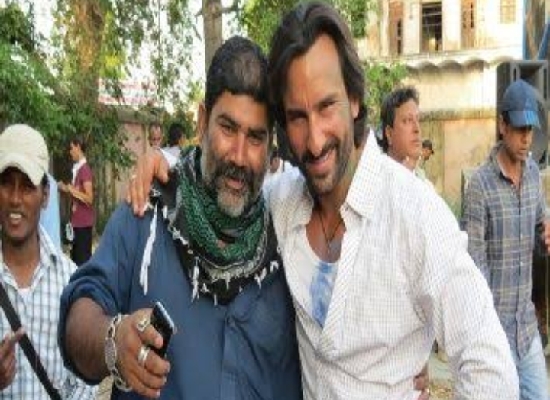While 3D film "Gravity" walked away with most of the golden statuettes out of its 10 nominations thanks to its technical brilliance, the Academy's over six thousand voters bestowed the top award on "12 Years A Slave" out of the nine best picture nominees.
Best actor and actress Oscars went to Matthew McConaughey and Cate Blanchett for their roles "Dallas Buyers Club" and "Blue Jasmine" respectively.
The acclaimed film, based on the memoirs of Solomon Northup, a freeman forced into slavery, touches upon a topic that has been missing in Hollywood cinema for a long time.
Lupita Nyong'o and John Ridley brought the other two trophies for "12 Years A Slave" in the best supporting actress and best adapted screenplay categories.
In her emotionally-charged speech, Lupita thanked McQueen for his honest portrayal of a dark issue, saying: "It does not escape me for one moment that so much joy in my life is thanks to so much pain in someone else's. I want to salute the spirit of Patsey, for her guidance and for Solomon... Thank you for telling her story and your own."
Both producer-director McQueen and co-producer Brad Pitt also paid tribute to the heroic story of Northup.
McQueen dedicated the honor to those who suffered slavery and "the 21 million who still endure slavery today."
"Everyone deserves not just to survive, but to live. This is the most important legacy of Solomon Northup," McQueen said as he accepted the Oscar from Will Smith.
"It has been an absolute privilege to work on Solomon Northup's story," Pitt added.
Cuaron's film had a clean sweep in technical categories by winning film editing, sound editing, sound mixing, visual effects, cinematography and original score besides winning the best director award for the Mexican helmer. He also shared the editing award with Mark Sanger.
Cuaron thanked his leading lady Sandra Bullock after winning best director trophy.
"Sandy, you are 'Gravity'. You are the soul, heart of the film, the most amazing collaborator and one of the best people I've ever met. George Clooney, for your absolute trust."
 Blanchett, who won best actress for playing a broke but snobbish heroine in Woody Allen's "Blue Jasmine', Allen, whose is once again facing sexual abuse allegations from his adopted daughter.
Blanchett, who won best actress for playing a broke but snobbish heroine in Woody Allen's "Blue Jasmine', Allen, whose is once again facing sexual abuse allegations from his adopted daughter.
Blanchett, who received a standing ovation, joked, "Sit down. You're too old to be standing."
"I'm here excepting an award in an extraordinary screenplay by Woody Allen. Thank you so much, Woody, for casting me. I truly appreciate it," Blanchett said while also mentioning fellow nominees.
True-story of AIDS activist Ron Woodroof brought actor Matthew McConaughey his career's first Oscar in the best actor category.
McConaughey, who lost around 20 kgs of weight to pull the character off, said he needs three things everyday.
"Something to look up to, something to look forward and something to chase."
Jared Leto won the best supporting actor Oscar for his fearless portrayal of a transgender woman suffering from AIDS in "Dallas Buyers Club." The actor-musician mentioned the people in Ukraine and anti-government protesters in Venezuela.
"To all the dreamers out there... in places like Ukraine and Venezuela, I want to say, we are here. And as you struggle to make your dreams happen, to live the impossible, we're thinking of you tonight," Leto said.
"Dallas Buyers Club" also won the make-up and hairstyling award.
Crime drama "American Hustle" was the biggest loser at the Academy as it went empty handed despite its 10 nominations so did Martin Scorsese's "The Wolf of Wall Street" which failed to garner any award despite the buzz surrounding Leonardo DiCaprio's performance.
The 86th Academy awards were held at the Dolby Theatre at Hollywood & Highland Center.
Produced by Craig Zadan and Neil Meron, the award ceremony was hosted by Ellen DeGeneres.






Comments
Add new comment